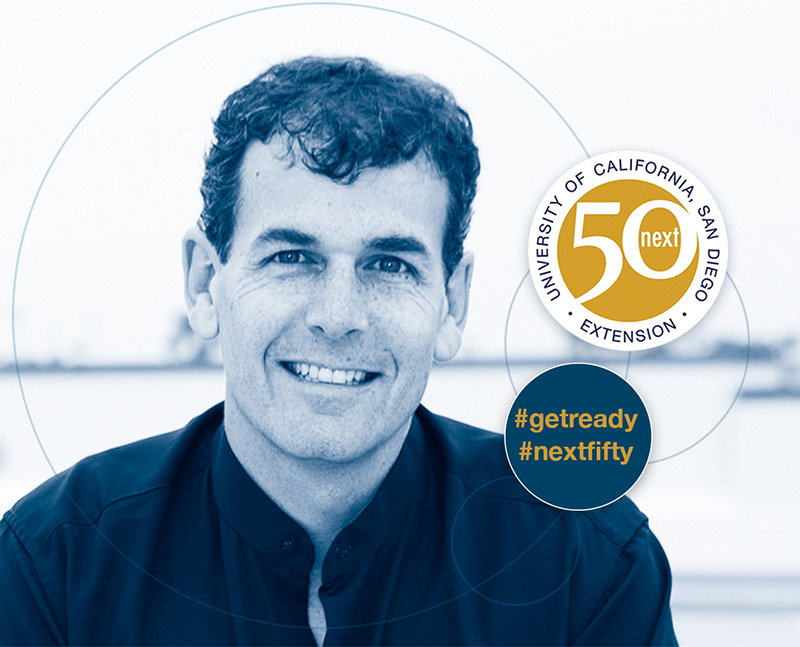
In honor of UC San Diego Extension's first 50 years, 50 Voices of the Future asks thought leaders about the trends, breakthroughs and social advances they foresee over the next 50 years.
Like most of the scientific community, social psychologist Wesley Schultz believes human beings have caused many of the environmental problems facing our planet. But Schultz’s research also shows that we can be the main factor in improving the health of our environment. The key is showing people that getting involved in conservation, recycling, and sustainability doesn’t necessarily mean sacrifice – in fact, healing the Earth can feel pretty darn good. Schultz teaches social psychology and statistics at Cal State San Marcos, and is teaching a course in Conservation Psychology at UC San Diego Extension this summer.
(1) Why is the work you do important?
It's clear that our current level of consumption and degree of environmental impact is unsustainable. If you think about the environmental problems that we face, the problems are caused by human behavior, and so solving the problem then means that we need to change behavior. We need to change what we do, and there are a lot of different pathways that can move us to a more sustainable way of living, but all of these pathways involve people. Whether we're talking about new technology like solar panels, or LED light bulbs, or local foods, or whatever the behavior is, it means that people need to do something different.
(2) What are the influential/exciting developments happening in your field now and why?
Historically, conservation has been seen as sacrificing. If you're going to conserve, it means giving up your personal gain in order to prioritize environmental protection. The new research is clearly showing that individuals can engage in environmental protection for personal reasons. In many cases, behaviors that have a positive environmental impact also have positive benefits to the person. People are happier, or they're living a simpler lifestyle, or there's the financial gain, or there's improved social connections.
(3) What’s the next big thing?
One of the things that I see in my research is that programs that are really effective have some sort of social component to them. They make sustainability and conservation fun and engaging. With the explosion of new technologies and especially social media, there's new ways of communicating, and this has opened up a large number of opportunities to engage people in sustainability. I think that's a really exciting opportunity.
(4) How big of an impact will your field play in shaping the future of the San Diego region and beyond?
One of the great things about living here in San Diego is that the natural environment makes for such a high quality of life, and people spend time at the beach, they're in the water in the bay, they're swimming, they're hiking. We spend a huge amount of time outside, and it's really a way of life here. People want to live in clean and healthy and safe environments.
If you think about our local region here, we're already seeing a direct impact of human behavior on our local environment. Whether it's sea level change, or water pollution, or air pollution, I think individuals in communities are going to really start pushing for change.
(5) Hop into your time machine…what does the future look like for this field in 50 years? How can individuals/companies get prepared for what’s next?
Our field of study can help us achieve the vision I have for the future:
Where getting from place to place is easy and convenient, and it uses clean sources of energy. We have comfortable temperatures in our indoor environments using energy that generates almost entirely from renewable sources. We're eating local food, and buying local products that support a strong ritual economy. There's very little trash because almost all used materials are collected and recycled. There are clean, beautiful public spaces that are free from litter, and people are living in communities where they can work and play and have families, all in close proximity, and where they have a connection and an engagement with their neighbors and their community.
Learn more about our Sustainability & Behavior Change certificate program and explore the variety of Environment & Sustainability courses and programs we offer every quarter.